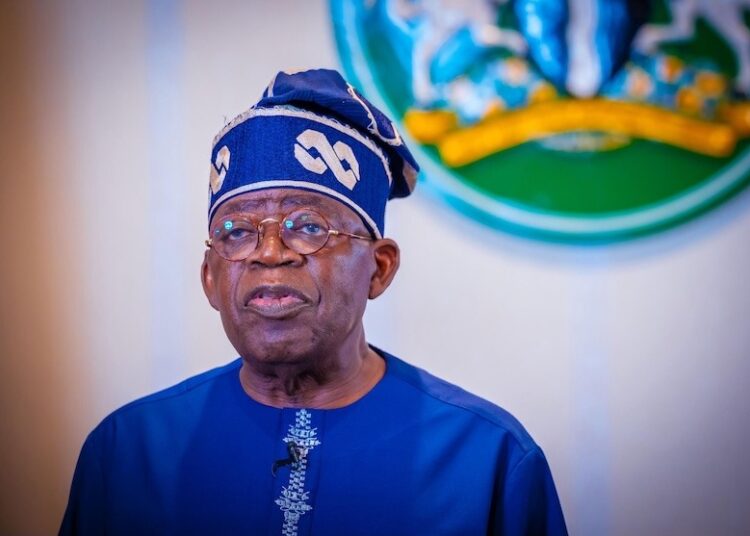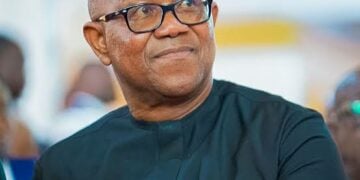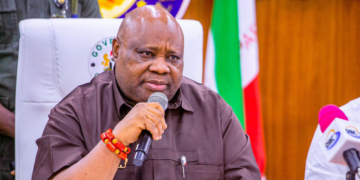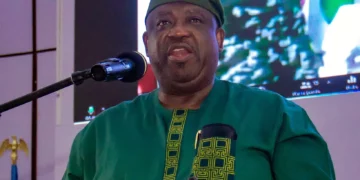July 29 and 30 July, 2025 may have come and gone, but the significance of the Kaduna gathering would reverberate for sometime ahead of 2027.
It was a 2-day interactive session on Government-Citizens engagement organised by the Sir Ahmadu Bello Memorial Foundation (SABMF) with the theme: Assessing Electoral promises: Fostering Government -Citizens engagement for national unity.
Before the event, claims of the North being marginalised in the Tinubu-led administration had been rife.
This claim was made louder by former presidential candidate of New Nigeria Peoples Party (NNPP) and leader of the Kwankwasiyya movement, Rabiu Musa Kwankwaso.
Kwankwaso, during a Stakeholders’ Dialogue on the 2025 Constitutional Amendment organised by the Kano State government, accused Tinubu’s administration of sidelining the northern region, alleging that national resources are being disproportionately channelled towards developing the South, the President’s home region.
His claim was supported by Northern socio-political groups, including the Arewa Consultative Forum, the Coalition of Northern Groups, Arewa Youth Consultative Forum, the League of Northern Democrats, and Arewa Youth Consultative Council.
The presidency strongly pushed back on the claim, saying it was “unfounded, misleading, and politically motivated.”
A senior presidential aide and former Minister of Youth and Sports Development, Mr. Sunday Dare, who reacted to Kwankwaso’s allegations via his verified X handle @SundayDareSD, said within just two years, the government has rolled out transformative projects and initiatives across key sectors in the North. Minister of Works, David Umahi also denied the claims of marginalisation.
This back and forth set the tone for the Kaduna gathering.
Promises made.
In the build up to the 2023 general election, a program was organised in Kaduna at the Arewa House by a coalition of six groups from the North, including the Arewa Consultative Forum (ACF), Arewa House; Sir Ahmadu Bello Memorial Foundation (SABMF), Northern Elders Forum (NEF), Jam’iyyar Matan Arewa (JMA), the Arewa Research Development Project (ARDP) and the Joint Action Committee of Northern Youth Association. It was for the then presidential candidates to meet with the Northern groups.
The candidates then were, Bola Tinubu of the All Progressives Congress (APC), Atiku Abubakar of the Peoples Democratic Party (PDP) and Peter Obi of the Labour Party (LP). They all shared their ideas and unveiled their plans for the region.
APC’s Tinubu won the 2023 election, getting a good chunk of Northern votes, thanks to the APC governors’ insistence on power returning to the North after late president Muhammadu Buhari’s eight years in office.
Last week’s gathering …
Although, the director general of the SABMF, Engr (Dr) Abubakar Gambo Umar, said the gathering was basically to assess whether or not promises made were either fulfilled or being fulfilled.
It is expedient to note that the two days event had virtually all the ministers, Service Chiefs, Heads of parastatals and Aides from the northern region serving in the Tinubu government in attendance.
President Tinubu and his vice, Senator Kashim Shettima, were not present at the event. The president was represented by the Chairman of the Nigeria Governors’ Forum, Governor Abdulrahman Abdulrazaq of Kwara State; while the Vice President was represented by Dr. Aliyu Modibbo Umar, Special Adviser to the President on Special Duties (Office of the Vice President).
Kaduna State governor, Senator Uba Sani, served as chief host, with Gombe State governor and Chairman of the Northern States Governors’ Forum (NSGF), Inuwa Yahaya, attending as special guest.
The Secretary to the Government of the Federation (SGF), Senator George Akume, led the federal delegation, alongside the National Security Adviser (NSA) Mal Nuhu Ribadu, Service chiefs, cabinet ministers, and heads of key agencies.
The attendees included the Chief of Defence Staff (CDS), Christopher Musa; Chief of Air Staff, Hassan Bala; Commandant General, Nigeria Security and Civil Defence Corps (NSCDC), Dr Ahmed Abubakar Audi; Special Adviser on Policy Coordination to the president, Hadiza Bala Usman, and not less than 20 ministers from the North.
Ministers at the occasion include, Minister of State for Defence Bello Matawalle; Minister of Defence; Badaru Abubakar, Minister for Information, Mohammed Idris; Minister of State for Works, Barrister Muhammad Bello Goronyo; Minister of State for Housing and Urban Development, Abdullahi Yusuf Atah; Minister of State, FCT, Dr Mahmoud Mariya; Minister of Livestock, Idi Muktar Maiha, Minister of Agriculture, State, Aliyu Sani Abdullahi; Minister for Budget and Economic Planning, Senator Abubakar Atiku Bagudu; Minister of Housing, Ahmed Musa Dangiwa; Minister of Regional Development, Uba Maigari Ahmadu; Minister of Environment, Balarabe Abbas; Minister of State for Transport, Saidu Ahmed Alkali; Minister of Art, Culture, Tourism, and Creative Economy, Hannatu Musa Musawa and the Minister of Water Resources, Professor Joseph Utsev.
It was a powerful delegation, a strong message had to be sent it seemed.
Interestingly, unlike the 2023 gathering, last week’s gathering was organised only by SABMF as against the six that organised the one prior to the election that produced President Tinubu.
Marginalised or not …..
Delivering the keynote address, Nigeria’s Permanent Representative to the United Nations, Professor Tijjani Mohammed Bande, highlighted the resilience of Nigeria in the face of global and domestic challenges and called for strategic negotiation of Northern interests within the broader framework of national development goals.
In defence of the government of President Tinubu, all the Ministers from the Northern extraction took turns at different plenary sessions under National Security, Government and economy, Agriculture and Food Security, infrastructure and human capital development to provide details of what the present government has done in the North and why the North should support President Tinubu come 2027.
Despite their various presentations in defence of the government, the apex northern sociocultural group Arewa Consultative Forum (ACF) maintained that President Tinubu has sidelined and marginalized the northern region in many areas. The Chairman of the Board of Trustees (BoT) of the Forum Alhaji Bashir M. Dalhatu accused President Tinubu of neglecting Northern Nigeria despite the region’s overwhelming electoral support in the 2023 presidential election. Dalhatu averred that the North was beginning to feel shortchanged, noting that “5.6 million out of the total 8.8 million votes President Tinubu received came from the North — that is 64%.l“Yet,” he said, “two years into his administration, there is a growing feeling of abandonment across the region.
Those who did not vote for him now seem to enjoy greater federal presence and patronage.” Topping the concerns, according to the ACF BoT Chairman, is insecurity. “Insurgency, banditry, kidnapping, and other violent crimes have continued to paralyze the region. With the exception of Kaduna and Bauchi, nowhere in the North is safe,” he said, urging the President to “show the political will to end this crisis.”
He also decried the marginal funding of agriculture despite the sector being “the backbone of the Northern economy and providing over 75% of Nigeria’s landmass and 95% of its livestock.” He warned that recent government policies on food importation have “triggered a glut in the market, forcing rice mills to shut down and laying off workers.”
Dalhatu highlighted the gross infrastructure disparity, citing a May 5, 2025, press release by the Federal Ministry of Works. “While N1.394 trillion was allocated to the Southwest, the entire Northeast got just N30 billion and the Northwest N105 billion,” he revealed. “Such allocations are openly skewed and smack of regional bias,” he added.
On power supply, the ACF leader called for a “state of emergency” in the sector and demanded the immediate execution of key Northern-based projects such as the Mambilla Hydropower Dam and the Abuja-Kaduna-Kano Gas Pipeline. “Without power, there is no industrial future for the North,” he said emphatically.
Dalhatu also lamented the education crisis, citing World Bank figures that estimate 20 million out-of-school children in Nigeria — 80% of them from the North. He called on President Tinubu to relaunch the Universal Basic Education (UBE) scheme with renewed commitment to “compulsory, free education for all.”
He described the slow pace of work on Ajaokuta Steel as “disheartening,” noting that “only $2 billion is needed to revive this giant.” He also warned that shifting focus from full federal funding to Public-Private Partnerships (PPP) could delay its completion indefinitely. “President Tinubu must show he’s serious about industrializing the North,” Dalhatu urged.
He called on the President to “follow through on his commitments to develop the North’s hydrocarbon potential.”
Dalhatu accused President Tinubu of “sectionalism, cronyism, and insensitivity.” He concluded by calling for the revival of the proposed ACF–FGN Contact Committee. “This interactive session should transition into a standing body. The North has spoken — clearly, calmly, and with conviction,” he declared.
But despite the position of ACF as presented by its BoT chairman, a communique that came out from the 2 day event was that Presented Tinubu has done well and backed his reforms even though it called for a stronger citizens engagement.
Northern Governors also agreed that the President has kept his promises and should be supported to continue in 2027. Chairman of the Northern States Governor’s Forum (NSGF) and Governor of Gombe State, Muhammadu Inuwa Yahaya, said that President Bola Tinubu has kept promises made in 2023 and is still keeping them.
In his presentation, he said on behalf of the Northern Governors that “I make bold to say that the evidence of progress is visible across our region. Thanks to Mr. President’s renewed hope agenda, many projects started by the previous administration are now racing towards completion. These include the Abuja-Kaduna-Kano Expressway, the Kano-Katsina-Maradi rail line, the rehabilitation of the Kaduna Refinery, the Abuja-Kaduna-Kano Gas Pipeline project, and continuation of drilling activities in Kolmani Oilfields. These projects promise to bring industrial growth and energy security to Northern Nigeria.
“He said new infrastructure projects are also coming up, including various inter-state road networks like and the ambitious Sokoto-Badagry Superhighway that will connect Northern producers to southern markets, agriculture value chain initiative targeting northern states, expansion and upgrade of healthcare facilities all point to a deliberate policy towards uplifting the wellbeing of our people, while on the security front, he said significant progress has been witnessed. The creation of the Ministry of Livestock Development addresses a generations-old challenge, providing a framework to modernize our pastoral economy. This administration has also demonstrated commitment to our youth through targeted grants and renewed efforts to tackle the Almajiri and out-of-school children crisis through partnerships with state governments, traditional institutions and international partners.
“There is no doubt that the economic reforms undertaken by this administration, including fuel subsidy removal and exchange rate floatation, have come with debilitating side effects. However, these were necessary measures in order to stabilize our economy for long-term growth. The pain is real, but so is the progress.”
He said, to sustain and build on these gains, all Northern stakeholders must play their part, our state governments must complement federal initiatives with local investments in infrastructure and human capital development.
“Traditional rulers and religious leaders should continue their vital role in community mobilization and conflict resolution. Business leaders and civil society must maintain their constructive engagement.
“Our region’s decisive support for this administration was rooted in the understanding that the North-Southwest alliance is not merely political arithmetic, but a stabilizing force for national unity,” he stressed.
Corroborating the positions of the northern governors, the ministers of National Planning, Senator Atiku Bagudu; minister of state for Agriculture, Senator Aliyu’ Sabiu Abubakar, and minister of state for Works, Bello Muhammad Goronyo among other speakers declared that the North has no reason to regret supporting President Tinubu, as the region remains fully represented and actively engaged in national governance.
They all assured that the Tinubu administration is inclusive and built on national unity, dismissing any notion of systemic discrimination against the North. They insisted that President Tinubu’s team reflects a national character and is guided by competence, vision, and merit.
“Those of us privileged to serve in President Tinubu’s administration are vigilant in defending the interests of the North. There is no exclusion, and there is absolutely no reason for regret,” Bagudu stated.
Describing President Tinubu as a nationalist, the ministers said all appointments and policies of the current administration are driven by merit and national interest rather than ethnic or regional considerations.
They called on Northern leaders and citizens to ignore divisive narratives aimed at painting the region as marginalised, asserting that “the North is deeply engaged at all levels of governance.”
According to informed sources, the government was not certain if other players that held the 2022 program where the promises were made will agree that the President has done well and should be supported in 2027 hence, the choice of only the SABMF to be used, but it turned out that the communique because of the dicontant tunes at the event could not specifically endorse the President for 2027 despite all the presentations.
As it stands now, the position of the North which is a major determining factor as to who becomes president is uncertain. Whether President Tinubu will get the huge support of the North (as he did in his first contest) for his second term bid will be a function of his performance in the next two years, and apparently by proving insinuators of marginalisation wrong through a more inclusive government in all ramifications.
We’ve got the edge. Get real-time reports, breaking scoops, and exclusive angles delivered straight to your phone. Don’t settle for stale news. Join LEADERSHIP NEWS on WhatsApp for 24/7 updates →
Join Our WhatsApp Channel










